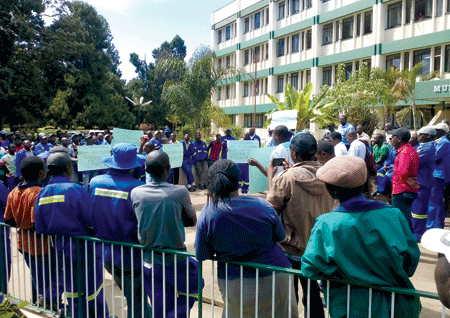
A GOVERNMENT-APPOINTED caretaker commission tasked to administer Gweru City Council following the suspension of all the local authority’s 16 councillors has proposed slashing of workers’ allowances saying they were too high and unsustainable.
by Stephen Chadenga Commission chairperson Tsunga Mhangami said workers across all grades were getting unrealistic allowances that made the wage bill surpass the income generated by the local authority.
Mhangami said there were workers who were getting as much as $1 000 in allowances for their water bills and said the commission was working on addressing the anomaly.
“We have workers who earn allowances as high as $1 000 and they say it’s for covering their water bills,” he said.
“On top of that, there are other allowances for transport, housing and funerals, which are just unrealistic and people end up earning figures that are just weird.”

Mhangami said the allowances had pushed the wage bill to $1,6 million per month against monthly revenue of $1,2 million.
“If you look at the current wage bill of $1,6 million against $1,2 million revenue collected, it means that council is operating at a deficit of $400 000,” he said.
- Chamisa under fire over US$120K donation
- Mavhunga puts DeMbare into Chibuku quarterfinals
- Pension funds bet on Cabora Bassa oilfields
- Councils defy govt fire tender directive
Keep Reading
“It means that there is no money for service delivery with council operating from hand to mouth.”
He said the method used by the city fathers to calculate allowances needed to be revised as it made the figures unrealistic.
“They just calculated allowances on percentages based on basic salary, this is just out of this world,” he said.
Mhangami said the commission was also working on the revenue collection system, which he said left a lot of loopholes with many houses built on undesignated land going unbillled. He also said there were many vendors at council market stalls who were not paying rates.
Over the years council has been dishing out residential stands on undesignated land, mainly on infills that should be left open.










